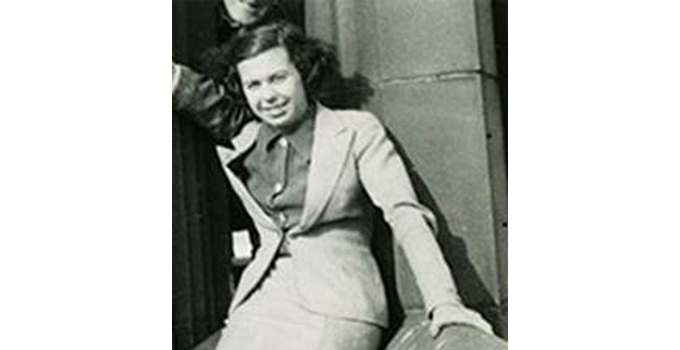Rita Cornforth Fellowship Position

You may not have heard her name, but she was one of Australia’s most important scientists. An organic chemist who pioneered the synthesis of penicilliamine, steroids and the stereochemistry of molecules involved in the biosynthesis of cholesterol, Rita Cornforth often fell to the same fate as other female scientists – ignored and overlooked in favour of the work of her husband – the Nobel Prize winning John Cornforth.
Yet, despite her lack of recognition, many still remember this pioneer. In recognition of her work, in 1996 the ANU Research School of Chemistry, under the direction of Professor John White, established the Rita Cornforth Fellowship. The Fellowship, dedicated to promoting women in science, provides recipients with five years of funding to work at the ANU Research School of Chemistry. The funding is then associated with a permanent position in the school.
Applications for the next fellowship are open now. The Research School of Chemistry is looking for high quality female chemists from around the world to apply.
We spoke to two of the previous awardees – Professor Michelle Coote and Dr Megan O’Mara. Both now respected scientists in their respective fields, they both said that the Rita Cornforth Fellowship was integral to the development of their career.
Professor Michelle Coote was the second awardee of the fellowship, coming to the Research School of Chemistry in 2001 on an ARC Postdoctoral Fellowship, and then being awarded the Rita Cornforth Fellowship in late 2003 as the ARC Fellowship was coming to an end. At the time Coote says that she was struggling in her academic pursuits. The fellowship however changed all that.
“I see the fellowship as incredibly important,” Coote says, “because at that stage I was on my second post-doc. In my mind, anything more than two post-docs is too much. So I thought, well, I need to get an academic position. But there were simply no positions being advertised.
“So I basically filled out all the public service application forms, and was on the verge of submitting them, when this one came up, and I somehow got it. It was a bridge that they gave me that gave me enough confidence to stay in academia just a bit longer.”
Dr Megan O’Mara, who received the fellowship in 2014, and is coming to the end of her time as the Rita Cornforth Fellow, had a similar experience to Coote.
“I was awarded my PhD in 2005,” O’Mara says, “and I've been on continuous fellowships since then. That was fantastic, but it was all soft money. Having something as prestigious as the Rita Cornforth Fellowship, which is attached to a continuing position, was just fantastic. It allowed me to set up a stable research group, and to focus on getting research done and getting grants. I got to do this without having to worry about where my salary was coming from, as well as everyone else's.”
O’Mara says that the fellowship brought with it a range of opportunities she would not have received through other career paths.
“Because of the Rita Cornforth Fellowship, I was invited to speak at a lot of conferences, and also invited to give seminars at other universities, which was a fantastic experience. The Fellowship really allowed me to get my name out there, both internationally and with a lot of people across ANU.”
Both Coote and O’Mara emphasised the importance of the Fellowship as a way of keeping women in chemistry.
“My observation is,” Coote says “that when positions are advertised in an open manner, we don't get too many female applicants. But when we advertise women-only ones, we actually get a field that is strong enough to dominate the open positions. So, there must be some barrier for women to actually apply. It's not so much we have a weaker field to choose from, we're actually getting an equally strong field.”
So, for women who are interested in applying, both Coote and O’Mara gave the same advice: “Go for it!”
“If you think that you don't fit quite properly,” O’Mara says, “or even if you think you're not quite ready for something like this, put yourself out there and just give it a go. That's the best advice I can give. Women underestimate themselves, but there is a lot of talent out there.”
Apply via the ANU External Web
